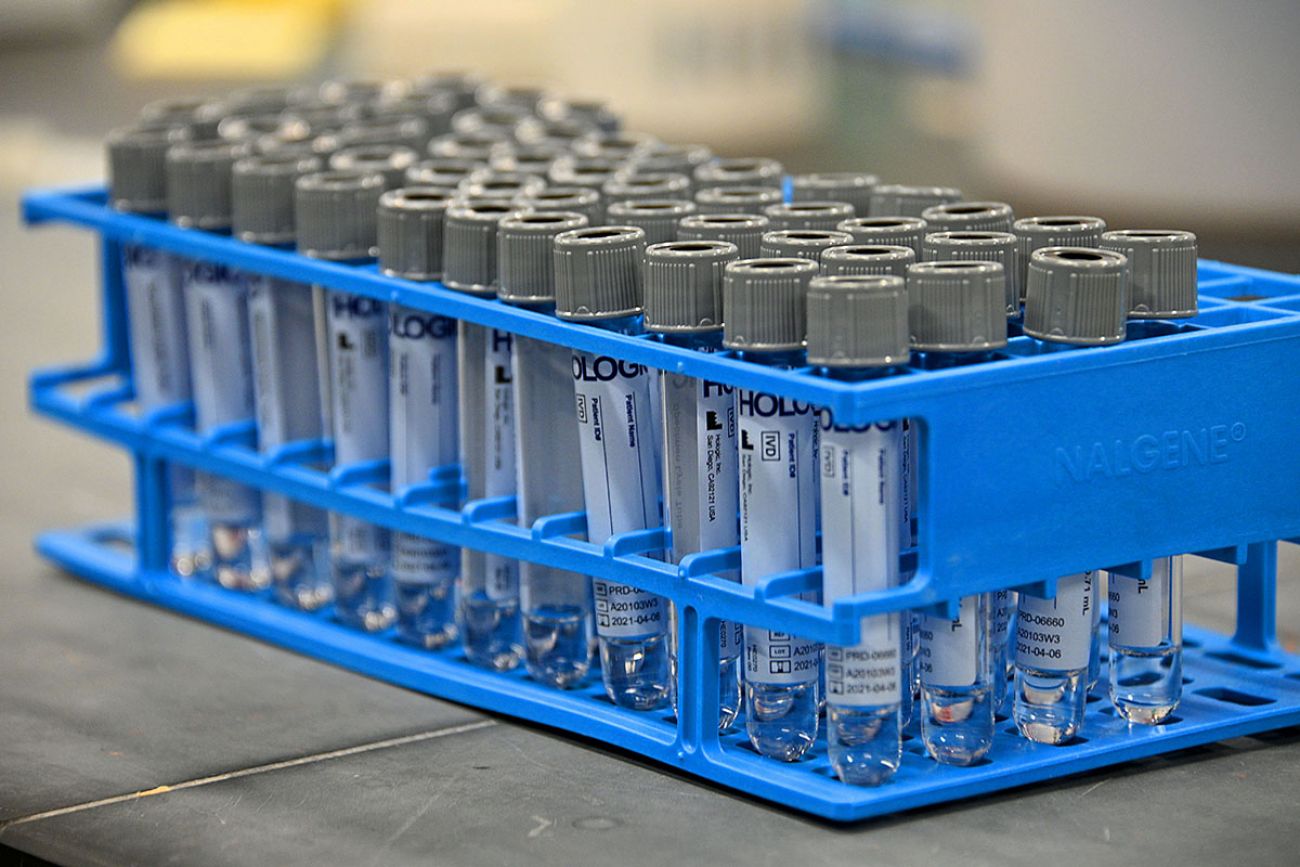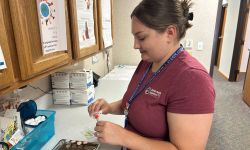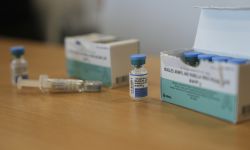Michigan getting better at vaccine distribution. It’s still not good enough.

After a slow start, Michigan has ramped up its coronavirus vaccinations and now is one of the better states at getting shots into arms.
Michigan now ranks 20th in the rate at which it is vaccinating its residents, up from 45th just weeks ago. But despite the improvement, frustration is rampant among residents, as well as county and health officials.
Most say there still simply are not enough doses of the vaccines designed to stop the spread of a disease that has killed over 14,000 people in Michigan alone.
So far, vaccine manufacturers have shipped nearly 1.5 million doses of the vaccine to Michigan and over 802,000 have administered to residents: 659,000 in first doses, with 143,000 of those already getting the required second dose.
But the state has a long way toward achieving its goal of vaccinating 70 percent of everyone 16 and older, which is over 5.7 million people.
“That’s been the incredible challenge: the demand does not meet the availability of the supply right now,” said Mark Hackel, county executive of Macomb County in southeast Michigan, the third largest county in the state.
Hackel said Macomb has the capacity to vaccinate 50,000 a week but is only getting 5,000 doses. This week, the county’s appointments that were made available online were snapped up in 11 minutes, Hackel said in a coronavirus update video.
One other source of frustration is that some counties appear to be doing better than others at vaccinating residents. Statewide, about 6,500 per 100,000 residents have gotten at least the first dose of the two-dose vaccines.
Many smaller counties far outpace that rate: In tiny Ontonagon County in western Upper Peninsula, just over 1,000 of the county’s 5,800 people have gotten the first dose, equal to 18,000 per 100,000.
In Detroit, meanwhile, just under 15,600 people, or 2,317 people per 100,000, have been vaccinated. In neighboring Oakland County, over 88,000 people have gotten the first dose, or nearly 7,000 people for every 100,000 people in the county.
John Roach, spokesperson for Detroit Mayor Mike Duggan, said the city has had no problem using all the doses it has been given so far. Over 15,000 city residents have gotten the vaccine and the city health department has used over 75 percent of its shipments today.
“We currently have more than 10,000 Detroiters already in the queue for the next month and that number will grow dramatically when we lower the age for appointments to 65,” Roach told Bridge Michigan in an email. “Our only limiting factor has been vaccine supply.”
It’s a common refrain throughout the state and nation as new President Joe Biden is pledging to speed the production of vaccines.
The Democrat’s administration on Tuesday announced that all states can expect a 16 percent increase in doses starting next week.
For Michigan, that would mean another 30,000-40,000 doses. County health officials say they need far more.
Some of the differences between counties may be explained by the location of major health-care facilities of long-term care facilities, whose workers and residents were the first in line for the vaccine.
The state has reported that 81,000 residents and staff at those facilities have been vaccinated.
Related:
- Michigan expert depressed by COVID vaccine myths, government rollout
- Michigan: 90 percent need COVID vaccine for herd immunity. That’s unlikely.
- Michigan makes gains on COVID vaccines at nursing homes; other seniors wait
- Not if, but when: Michigan on lookout for faster-moving COVID variant
But that doesn’t explain it all: Over 35,000 Washtenaw County residents have gotten the first dose, or over 9,500 for every 100,000 people. In Kent County it’s 55,000 or 8,400 per 100,000.
Across the state in Genesee, however, it's 16,700 or 4,100 per 100,000, the second lowest (after Detroit) among counties with over 100,000 people.
Part of that could be explained by racial disparities. African-Americans and Hispanics have been reluctant to get the vaccine, and officials are working to quell that anxiety.
And another hurdle may be how people learn about the vaccines.
Many communities are opening their appointments up via the Internet — meaning that savvy computer users with good connections may have an advantage.
That could be a problem in places like Flint and Detroit, where as many as 40 percent of residents don’t have an internet connection. That’s also a problem in isolated areas of northern Michigan, research shows.
"In many places — and we've seen it in cities all across the country — people only had one way to find out, and that was online. Of course, we know we have a big digital divide,” Debra Furr-Holden, a professor of public health at Michigan State University, said during a panel discussion Wednesday.
In distributing the vaccines, the state has tried to deliver more doses into communities with more vulnerable populations, including where there are more elderly and poor people.
And the state has encouraged counties to make sure it reaches out to those communities with its vaccination campaigns.
“There has been direction for us to assure our most vulnerable ZIP code areas are taking the vaccine and to focus our efforts within those communities,” said Eric Pessell, the health officer of Calhoun County. “As we vaccinate more seniors, we will have enough data to start to review that data and move our focus where needed.”
The state, though, does not make public data about who is receiving the vaccine beyond their age. But health officials say more detailed demographic information could be released soon.
Hackel, the Macomb County executive, said the state should reprioritize vaccinating the elderly, since 80 percent of COVID-19 deaths have been those 70 and older.
That was the state’s initial approach, after offering most vaccines to health care workers. But in early January, Gov. Gretchen Whitmer said counties could begin offering the vaccine to those over 65 as well as “frontline essential workers” such as police and teachers.
That caused a surge in demand and expectation, that Hackel said fueled a “frenzy” and “panic.”
Lynn Sutfin, a state health spokesperson, said the state is following U.S. Centers for Disease Control and Prevention guidelines to protect the most vulnerable and ensure “the continuing functioning of the health care system and essential services in the community.
“These prioritizations may change as more information on vaccine effectiveness and additional vaccination products become available,” she said.
See what new members are saying about why they donated to Bridge Michigan:
- “In order for this information to be accurate and unbiased it must be underwritten by its readers, not by special interests.” - Larry S.
- “Not many other media sources report on the topics Bridge does.” - Susan B.
- “Your journalism is outstanding and rare these days.” - Mark S.
If you want to ensure the future of nonpartisan, nonprofit Michigan journalism, please become a member today. You, too, will be asked why you donated and maybe we'll feature your quote next time!








